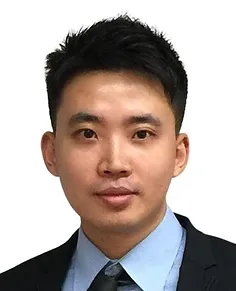
Journal Menu
► ▼ Journal Menu-
- Water Home
- Aims & Scope
- Editorial Board
- Reviewer Board
- Topical Advisory Panel
- Instructions for Authors
- Special Issues
- Topics
- Sections & Collections
- Article Processing Charge
- Indexing & Archiving
- Editor’s Choice Articles
- Most Cited & Viewed
- Journal Statistics
- Journal History
- Journal Awards
- Society Collaborations
- Conferences
- Editorial Office
Journal Browser
► ▼ Journal BrowserNeed Help?
Announcements
11 October 2023
Interview with Dr. Zhe Yang—First Prize Winner of the Water 2023 Young Investigator Award

Dr. Zhe Yang is a Research Assistant Professor at the Department of Civil Engineering, at the University of Hong Kong, Hong Kong, China. Dr. Yang’s research work focuses on membrane-based water and wastewater treatment by designing high-performance reverse osmosis and nanofiltration membranes and unveiling their fundamental formation and transport mechanisms. Dr. Yang received his Ph.D. in 2018 and has an outstanding publication record, comprising over 50 referred international journal papers with total citations of over 4200. He has an h-index of 35 based on Google Scholar. Dr. Yang was featured in the prestigious World’s Top 2% Scientists list, published by scientists from Stanford University in 2021, which is an impressive record for a young membrane researcher and an outstanding achievement in today’s competitive environment.
The following is a short Q&A with Dr. Yang, who talked about his recent research, and shared his views on the research area:
1. What is your most important recent project? What is the significance of the project and how is it going?
My most important recent project features the design of high-performance reverse osmosis and nanofiltration membranes containing novel gutter layers (Environ. Sci. Technol., 54 (2020) 15563–15583), which significantly advances conventional membrane water permeance by an order of magnitude with simultaneously improved selectivity. The improved selectivity is beneficial for various resource recoveries to achieve the goal of membrane-based water/wastewater treatment and environmental sustainability.
2. In your opinion, how do scientific experiments in the laboratory really solve water problems in the real world?
Laboratory experiments could provide foundational knowledge breakthroughs, advanced techniques, and innovative tools that are essential for tackling water problems in the real world. Taking membrane technology as an example, technologies such as reverse osmosis, ultrafiltration, and nanofiltration have been widely adopted across the globe to treat water/wastewater, desalinate seawater, etc. The transition from laboratory research to worldwide application highlights the significant influence of scientific experiments on addressing real-world water issues.
3. What is your five-year research plan?
In the next five years, I plan to delve deeper into the study of low-cost water purification solutions, particularly focusing on energy-efficient and sustainable membrane technologies. In addition to designing innovative membrane materials and processes, I aim to scale up high-performance membranes in real-world scenarios to validate their efficiency and durability. Additionally, I plan to work closely with companies, NGOs, and government agencies for the research, development, and translation of our technologies. I also plan to publish impactful peer-reviewed papers on my findings and present them at international conferences to gather feedback and foster further collaborations.
4. Could you briefly introduce the latest research progress on membrane technology for waste/wastewater treatment?
Membrane technology has been at the forefront of water/wastewater treatment and desalination in recent decades. I have been fortunate to witness the vast evolvement of membrane technology in the context of water/wastewater treatment. The latest research progress involves developing novel membranes and membrane processes to extract valuable resources (e.g., nutrients, metals, energy) from wastewater, applying novel artificial intelligence (AI)/machine learning/data science, sensor integration, and other digital tools to optimize operations, predict fouling, and enhance overall system performance, and other developments (e.g., membrane bioreactors, electrodialysis, and capacitive deionization).
5. What will be the hottest research topic within your field in the future, in your opinion?
Some emerging hot topics in the membrane field include re-thinking membrane fundamental transport mechanisms, applying membranes in various environmental applications, designing novel membranes and membrane processes, and the application of artificial intelligence (AI), machine learning, and data science to advance membrane technology.
6. Why did you apply for the Water Young Investigator Award?
I have been working on addressing the grand challenge of the water-energy nexus and fulfilling the goal of sustainable development in the field of membrane-based water and wastewater treatment, which aligns well with the criteria of the Water Young Investigator Award, that recognizes excellence in the field of water science, technology, management, and government. In addition, I have served as Guest Editor for several Special Issues (SIs) for the journal Water in recent years, which further strengthened my decision to apply for this prestigious award.
7. Do you have any suggestions for the Water journal?
I have some minor suggestions for the Water journal, which are provided as follows:
Scope: The scope of Water can potentially be expanded. Some emerging topics, such as the application of AI, machine learning, and data science in addressing issues related to water science, technology, management, and governance, can potentially be included, which can help Water in addressing some contemporary challenges and trends.
Manuscript types: The current content of Water includes original research papers, critical reviews, data descriptors, and short communications. A wider range of content, such as opinion, perspective, and/or commentary, could attract a broader readership and diversify perspectives on water-related issues.
The Water Editorial Office would like to express its sincere appreciation to Dr. Yang and we wish him every success in developing his research.



